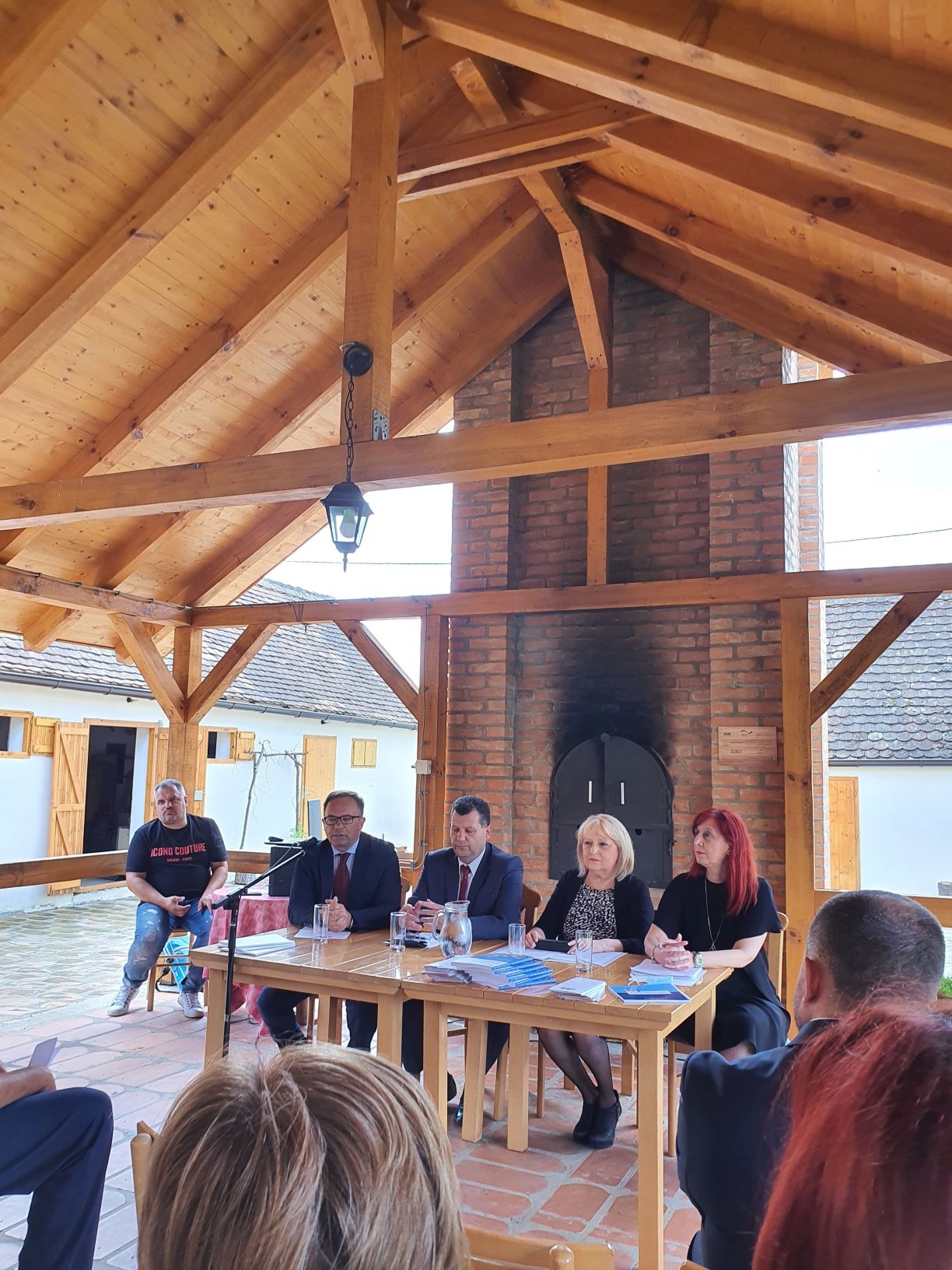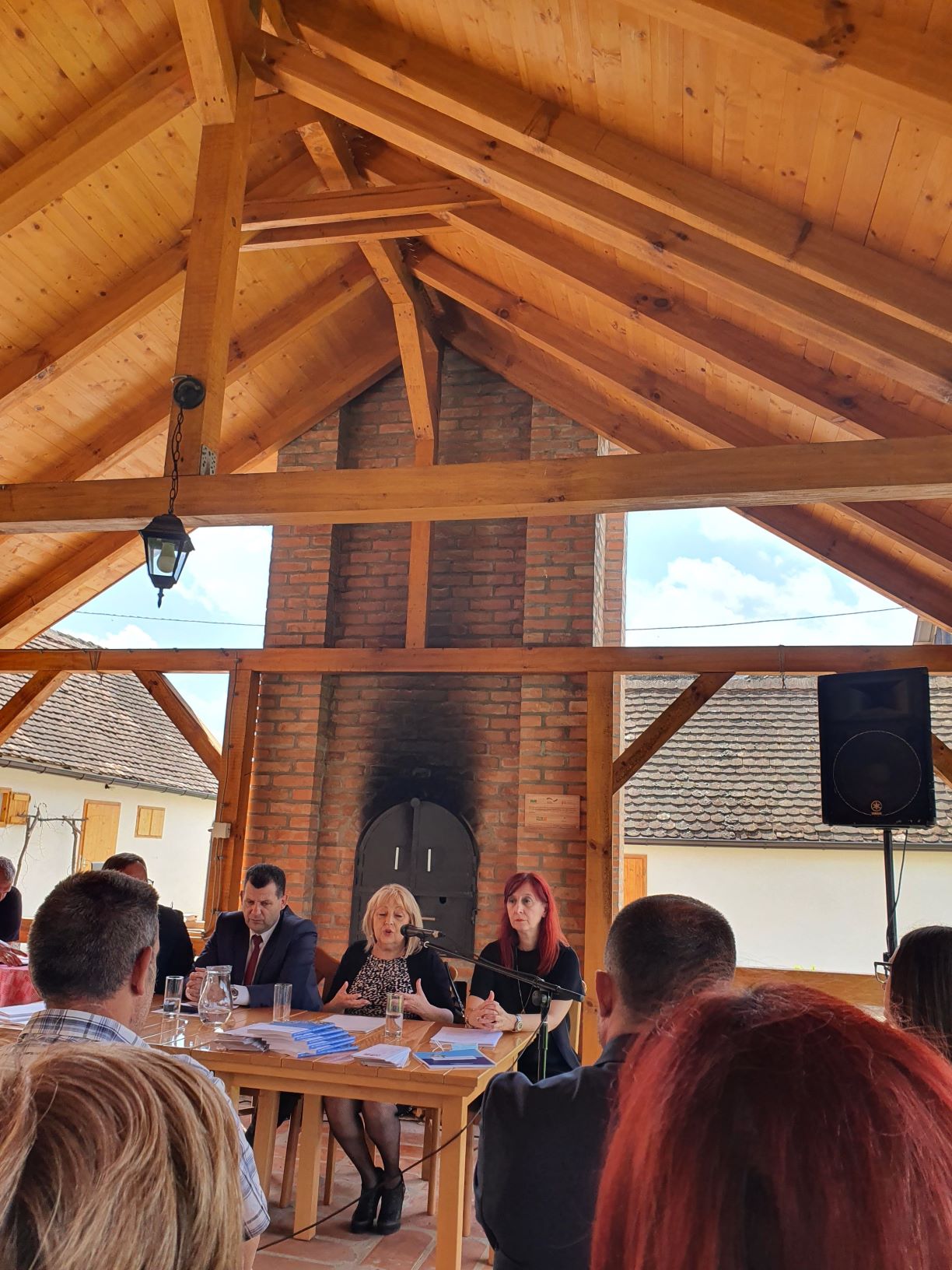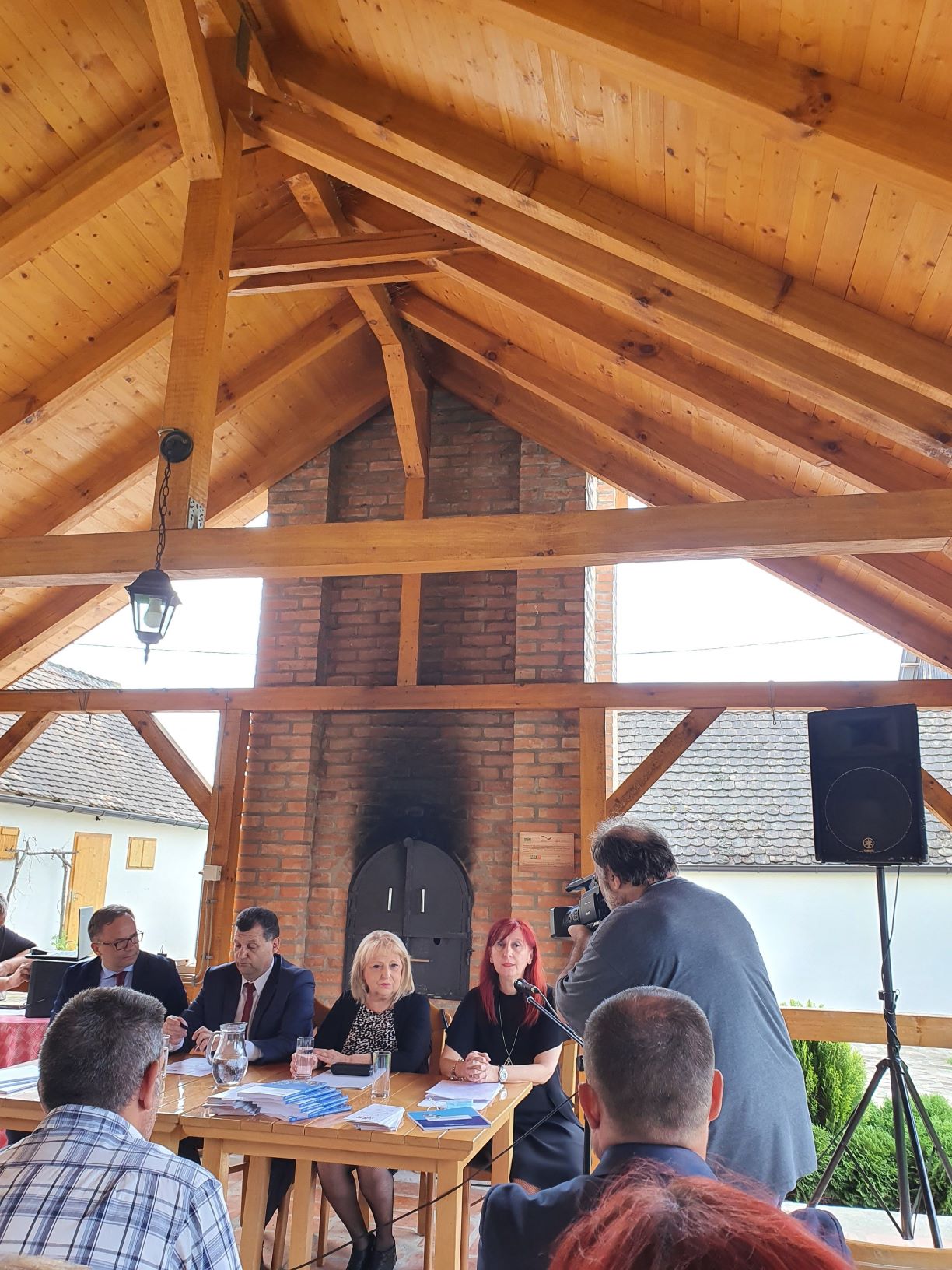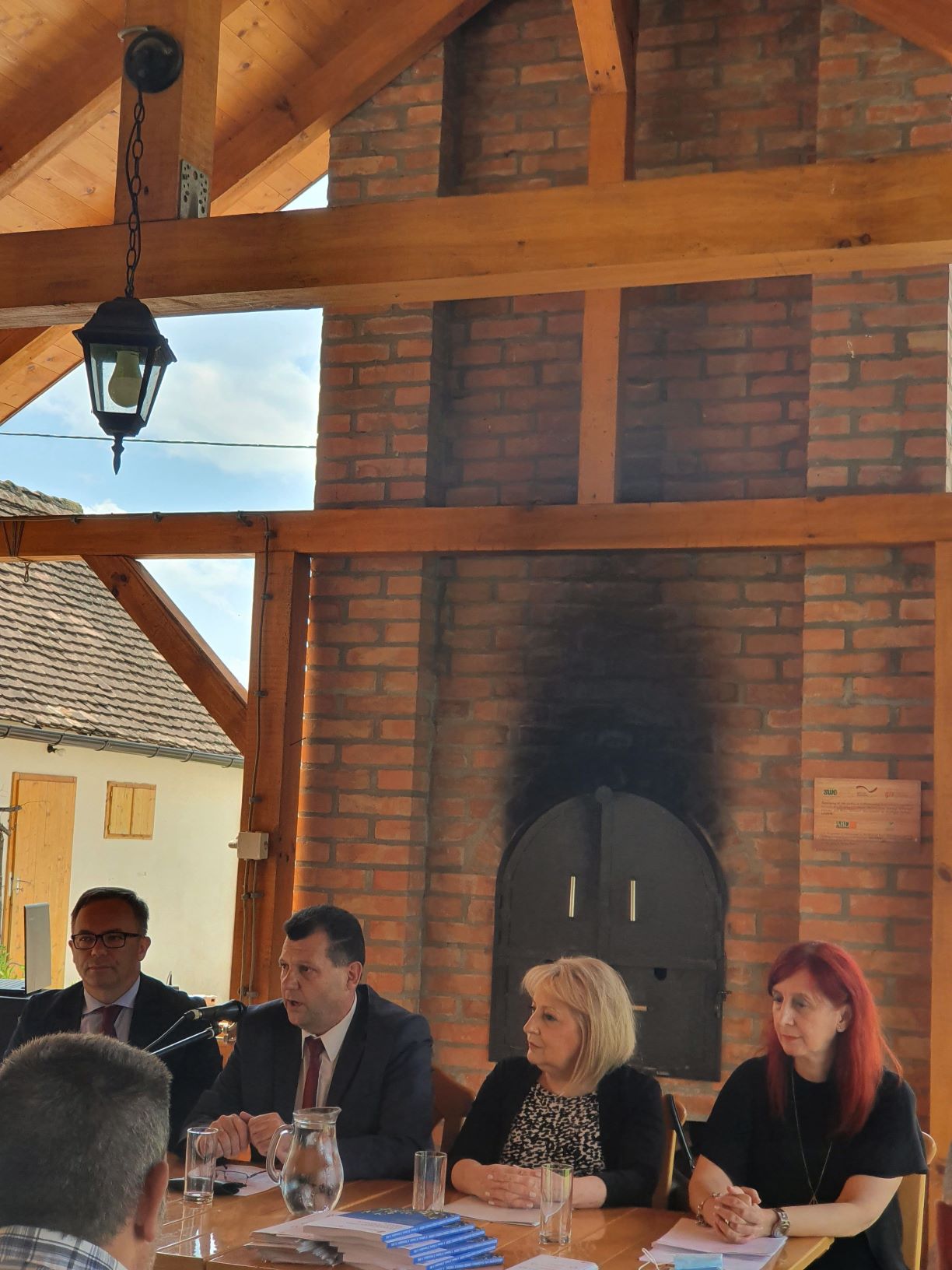Research study „Monitoring risk factors for informal caregivers in the republic of Serbia” presented in the Sustainable Development Yard in Bogatic

On Wednesday 10 June in Bogatic, a conference in Bogatic was organised to present the results of the research study „Monitoring risk factors for informal caregivers in the republic of Serbia”. The research was implemented with support of the Cabinet of the Minister without portfolio responsible for demographics and population policy. The overall goal of the research was to analyse effects of informal care to physical and mental health of caregivers and create recommendations for planning and development of public policy to improve their quality of life and health as well as to make their work more visible along with their contribution to the system of long term care services. Care for family members – whether older ones or children with disabilities – is an important public health topic that affects the life of millions worldwide. This “everyday duty” often affects the quality of life and health of those who need care and are serviced by informal caregivers, but also the quality of life and health of the caregivers themselves.
The important role of important caregivers was at the Conference discussed by Miroljub Nikolic, Director of Caritas Šabac, Nenad Beserovac, Mayor of Bogatić and Slavica Djukic Dejanovic, Minister without portfolio responsible for demographics and population policy.
Natasa Todorovic of the Red Cross of Serbia presented the results of the research implemented during the COVID-19 epidemic.
Informal caregivers bridge essential gaps in providing services of social care and protection in the short as well as the long term. Considering how important their role is, it is essential to understand the effects of providing care on their own physical and mental health. Globally speaking, between 70% and 95% of all care needs are met by informal caregivers.
The research was implemented in April and May 2020 with a sample of 112 caregivers whose average age was 51.1. Most of them are female (80%). The average period of providing care for a family member is five years.
42.9% participants in the research see their own health as neither bad nor good.
Informal caregivers routinely have many tasks during the day but also frequently encounter special challenges. Considering the epidemic period, it is fair to say it made the lives of informal caregivers considerably more complicated. It created the additional burden of fear, anxiety and isolation to an already stressful routine. The existing routines of care provision had to be abandoned and new ways had to be invented.
Informal caregivers in the epidemic face a twofold fear: falling ill themselves, which would prevent them from providing care to the person they care for, but also the risk of infecting the person. 40% of the research participants consider their health at a higher risk than before the pandemic.
What informal caregivers need the most – 39.9% cited this – is support through respite services.




